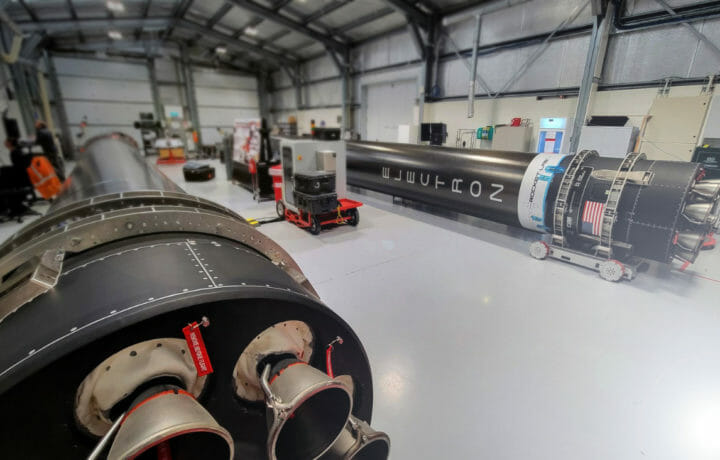Hiring activity for technology workers remains on an upward trajectory, countering reports of layoffs and reaffirming tech’s essential role in powering the nation’s economy, according to analysis by CompTIA, the nonprofit association for the information technology (IT) industry and workforce.
Technology industry companies added 20,300 net new workers in June, the 19th consecutive month of employment growth, CompTIA’s analysis of today’s “#JobsReport” from the U.S. Bureau of Labor Statistics (BLS) shows. Tech sector employment for the first half of 2022 is tracking 59% ahead of the same period last year.
Companies across the economy added 160,000 core technology workers in June. The unemployment rate for tech occupations fell back to 1.8%, compared to the overall national unemployment rate of 3.6%.
Employer job postings for new tech hiring totaled 505,663 last month, up 62% from June 2021.
The stronger than expected job gains reaffirm the critical role of tech across every sector and every business in the economy,” said Tim Herbert, chief research officer at CompTIA. “It also highlights the limitations in projecting company-specific hiring practices to the broader tech workforce.”
Employer hiring intent was strong across several industry sectors, led by professional, scientific and technical services, finance and insurance, manufacturing, information, retail trade, health care and social assistance and public administration. Job postings for software developers and engineers led the list of the most in-demand positions, followed by IT support specialists, IT project managers, cybersecurity professionals and network engineers and architects.
New hiring in the IT services and custom software development occupation category paced June’s job growth in the tech sector. Four other occupation categories also saw employment growth – data processing, hosting and related services (+3,700), other information services, including search engines (+3,600), computer and electronic products manufacturing (+2,300) and telecommunications (+700).
The “CompTIA Tech Jobs Report” is available at https://www.comptia.org/content/tech-jobs-report.
Contract Opportunities to Watch: Sparkcognition Government Services
SparkCognition Government Systems (SGS) has been awarded a $950,000,000 ceiling indefinite-delivery/indefinite-quantity contract for the maturation, demonstration, and proliferation of AI capabilities across platforms and domains. The solutions will use data, cloud, artificial intelligence, and much more to bring in information, analyze it, and deliver it to troops to make decisions faster.
SGS will work with the DoD to help develop and integrate these applications across multiple domains, delivering next-generation AI technologies tailored to national defense. This contract is part of a multiple award multi-level security effort to provide development and operation of systems as a unified force across all domains (air, land, sea, space, cyber, and electromagnetic spectrum) in an open architecture family of systems that enables capabilities via multiple integrated platforms.
“We’re thrilled to be selected by the Air Force to help improve multi-domain awareness utilizing our proven patented AI technologies,” said Logan Jones, President and General Manager of SGS. “At SGS, we’ve demonstrated the real-world capabilities of AI-powered mission readiness and battle management through military exercises like the International Maritime Exercise and Autonomous Warrior, and this contract with the USAF gives us the opportunity to expand the real-world value of our solutions across all domains of the DoD.”
SGS’ AI technologies are built uniquely for government and national defense missions to enable seamless edge-to-enterprise deployment, with an execution model that enables insights to be captured and acted upon wherever necessary–ultimately maximizing decision dominance. SGS’ open-architecture, hardware-agnostic solutions enable quick, easy integration with allies and partners, and can integrate diverse sets of data types and sources to enable richer insights and greater velocity of decision-making. Through the contract, SGS will apply these unique capabilities to the emerging set of problems facing the USAF, supporting the DoD’s ability to prevail in all operational domains.
Key Employer in the Cleared Industry: CISA
CISA leads the national effort to understand, manage, and reduce risk to our cyber and physical infrastructure. We connect our stakeholders in the private industry and government to each other and to resources, analyses, and tools to help ensure a secure and resilient infrastructure for the American people. Discover CISA.
SPONSORED CONTENT: This content is written on or behalf of our Sponsor.
Cleared Opportunities
Rocket Lab USA, Inc says that its next two launches will be responsive space missions for the United States Government’s National Reconnaissance Office.
Launching from Rocket Lab Launch Complex 1 on two Electron rockets, Rocket Lab is scheduled to deploy satellites to space for the NRO within only 10 days of each other. NROL-162 (“Wise One Looks Ahead”) will launch from Rocket Lab Launch Complex 1’s Pad A no earlier than July 12, with NROL-199 (“Antipodean Adventure”) scheduled to launch from Pad B no earlier than July 22.
The NROL-162 and NROL-199 missions will carry national security payloads designed, built, and operated by the National Reconnaissance Office in partnership with the Australian Department of Defence as part of a broad range of cooperative satellite activities with Australia. The satellites will support the NRO to provide critical information to government agencies and decision makers monitoring international issues.
These twin missions will be a demonstration of responsive launch under NRO’s Rapid Acquisition of a Small Rocket (RASR) contract for launching small satellite through a streamlined, commercial approach, and are the third and fourth missions contracted to Rocket Lab by the NRO under the contract. NROL-151 (RASR-1) was successfully deployed to space on a dedicated Electron launch in early 2020, followed by RASR-2 on another Electron launch in June 2020.
Rocket Lab CEO and founder, Peter Beck, says: “Space plays such a critical role in providing immediate insights and informing time-sensitive decisions, so a responsive, modern approach accessing orbit is crucial. This is what we’ve established with Electron and multiple launch sites – reliable rockets and multiple pads at the ready to support the national security community’s responsive space needs. Our quick turnaround for these two national security missions will be just the latest demonstration of our responsive space capability, and we’re honored to be a trusted mission partner to the NRO once again for these important RASR missions.”




